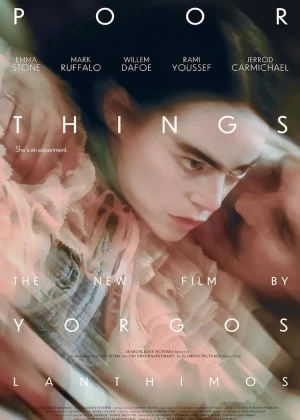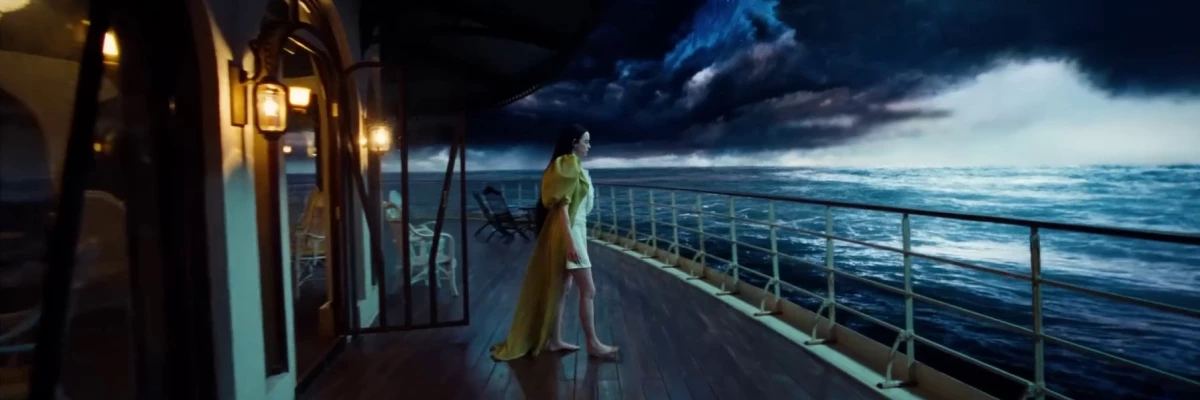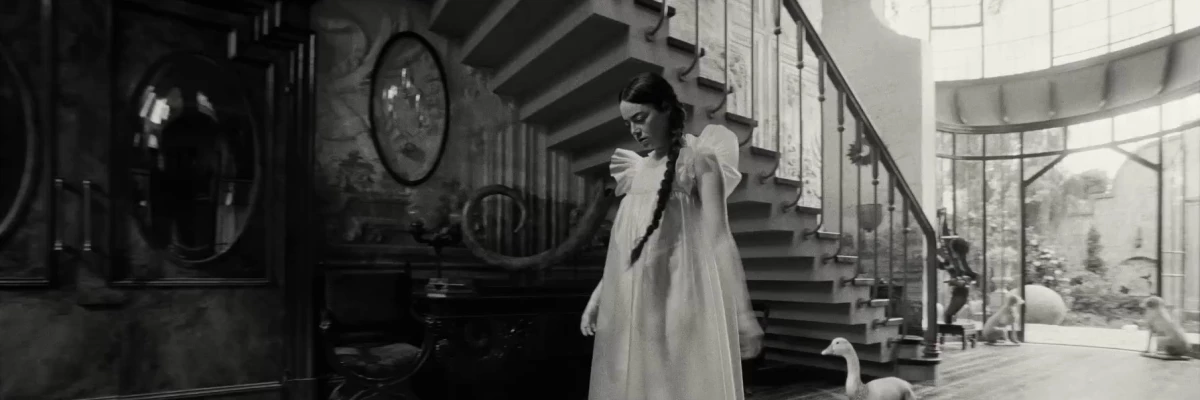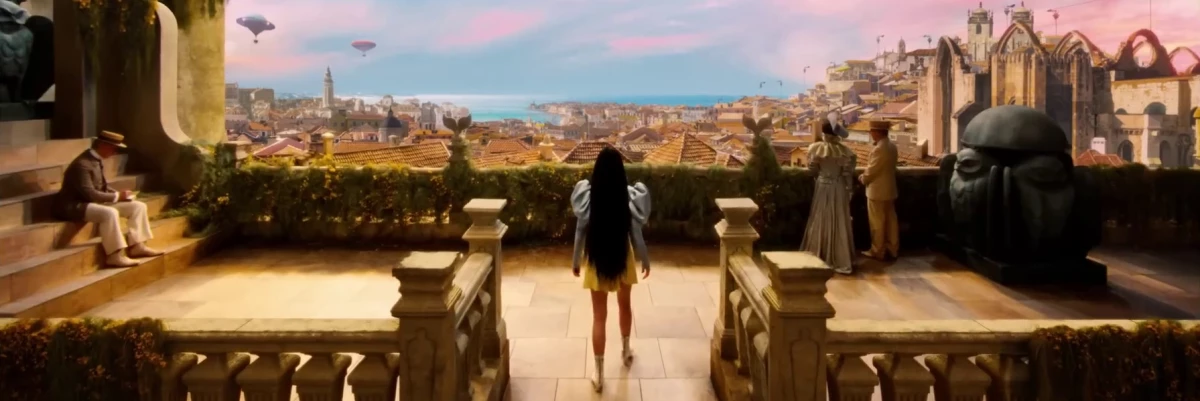Poor Things

Sometimes it pays to stick with a director. I wasn't blown away by Yorgos Lanthimos' earlier films like some others were. There was clear potential there, he showed signs of a director with a clear vision and voice, but somehow it felt like he was stuck in an arthouse niche that somewhat confined and restricted his output. Each new film got progressively better though, so I was somewhat excited to see how Poor Things was going to end up. It turns out Lanthimos went all-in for this one and finally delivered a film that shifted the boundaries of the familiar.

In earlier films, Lanthimos' style had always seemed a little distant, restrained, and minimalistic. Maybe it was budgetary limitations that kept him from going all out, or maybe this is just a logical artistic evolution in his work, but Poor Things is the exact opposite of that. It's a maximalist film that doesn't seem to believe in restraint, that dares to experiment, and that marches to the beat of its own drum. This is Lanthimos swinging big and hitting the ball right where he should, something more directors should try. Give me interesting failure over boring mediocrity anytime.
Some films are so unique you can't compare them with anything out there, others seem to burst with so many different creative references that you can only conclude they're nothing like anything you've seen before. Poor Things is the latter. From Shelley's Frankenstein to Chan-wook Park's The Handmaiden, from early Marc Caro to Wes Anderson and a dash of Pitof, there's a long list of films and directors I was reminded of while watching. But put them all together in one film and the mix makes so very little sense that I suspect it's just the result of my brain trying to make sense of everything it witnessed.
Bella is a young woman with the brain of an infant. She lives with a doctor, who hires an assistant to track Bella's progress. She makes great progress and seems to be growing up a lot faster than expected. Soon she cannot be confined to the house anymore, but her two guardians are afraid of what'll happen when she ventures out into the real world. They decide the assistant is going to marry Bella, but she wants an adventure before she commits to marriage, so she finds a charming man willing to take her on a vacation through Europe.

The visuals are the highlight of the film. You'll still find remnants of Lanthimos' old arthouse aesthetic (like the classic interiors and the black-and-white cinematography), but they are contrasted with fisheye lenses, creative interpretations of old cities and a camera that freely travels wherever it wants to go. The only thing that bothered me was the squarish aspect ratio. For the life of me, I don't know why directors nowadays keep messing with cramped aspect ratios, but it rarely leads to anything worthwhile, let alone an improvement over more current ratios. It's only a minor quibble, but disappointing nonetheless.
The score is fitting, but compared to the cinematography it's a tad less adventurous. It follows the trend of working with minimal compositions and somewhat distraught sounds (think scores like Birdman's). It works well enough and it adds a bit of extra quirk to the film, but it would've been nicer to see Lanthimos push it a little harder. By now these types of scores are a little too expected, and they certainly don't match the frivolity and creativity of the visuals. So even though the actual score is pretty solid, the potential was certainly there to do more with it.
The cast on the other hand absolutely aced it. Willem Dafoe almost has too much fun playing the mad doctor, Ruffalo is perfectly cast as the professional charmer who gets bested at his own game and Youssef is the perfect wimp. But while each of them adds their fair share to the film, it's Emma Stone's time to claim the spotlight. Not that she had anything left to prove, she's one of the better actresses around, but this here will no doubt be a career-defining performance. She was granted the perfect character for it too, even so, her dedication and interpretation are perfection.

Lanthimos throws the audience into a world that resembles our own but is still fundamentally different in several ways. Getting to experience that world without too much formal exposition is really the most fun part of the film. Once the story has settled into a more familiar pattern (i.e. Bella's journey has started and we see her mature as she visits several locations), and more elements of this wondrous setting are given an explanation, the intrigue slowly resides. It's a good thing then that there's enough stylistic excellence to go around for two or three regular films.
Whether this is the awakening of a new Lanthimos or just a lucky one-off remains to be seen. One thing is sure though, I'm really looking forward to seeing what he comes up with next. Poor Things is a fun, brave, and creative film that manages to surprise on every level, mixing a unique universe with spectacular performances and stylistic prowess. I think Lanthimos could've pushed Poor Things even further, especially on an audiovisual level, but the result is spectacular regardless, and something other directors should aspire to. A very cool surprise.